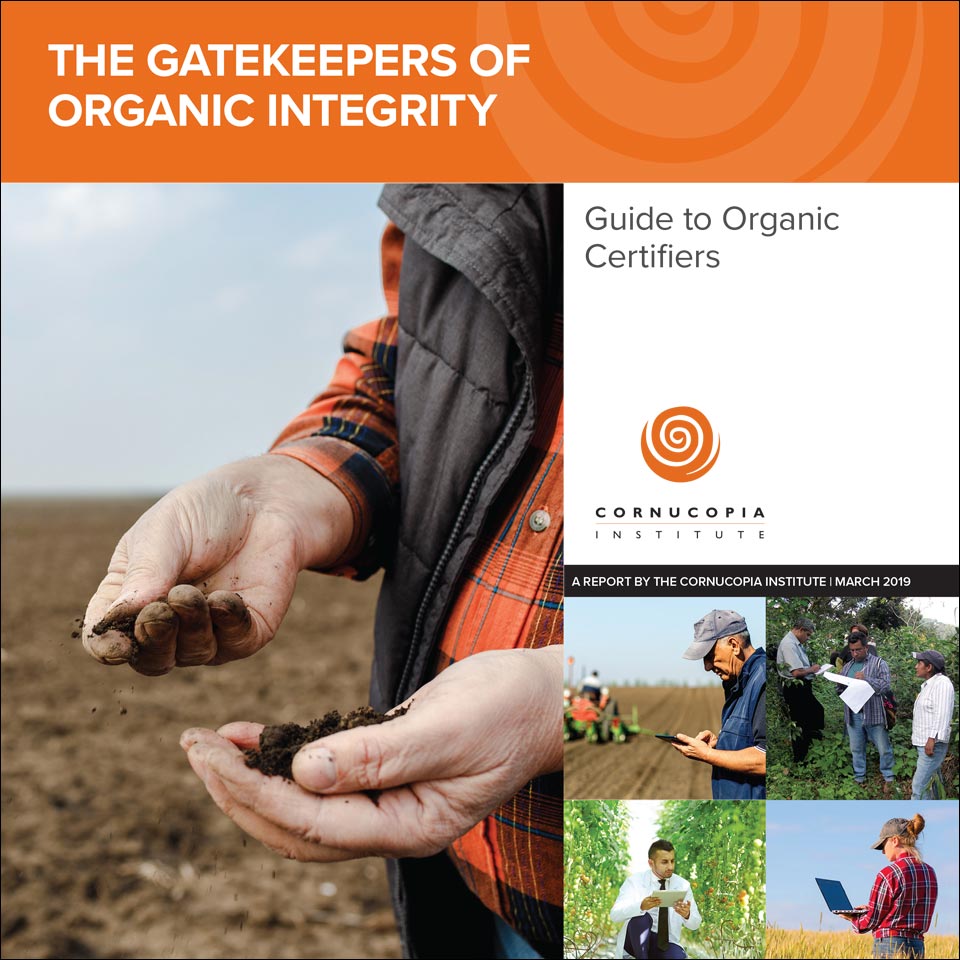Could the chain’s entrée into private-label organics cheapen the gold standard in food production? Rodale News by Emily Main Walmart has just announced that it’s going to throw its massive size and influence behind the organic food movement. By relaunching a historic brand, Wild Oats, which used to be Whole Foods’ biggest rival, the chain… Read more »
Search Results for: gmo
Cornucopia and Over 300 Other Groups Say No to Agriculture Mega-Mergers
Cornucopia’s Take: Over 320 farmer, consumer, beekeeper, environmental, and worker groups sent a letter to U.S. Attorney General Jeff Sessions demanding a stop to Dow/DuPont and Bayer/Monsanto mega-mergers. Cornucopia was a signatory. It is difficult to see how such mergers benefit either farmers or consumers. Over 300 food and farm groups Urge Jeff Sessions to… Read more »
New Study Finds GM Genes in Wild Mexican Maize
posted on Soyatech New Scientist Now it’s official: genes from genetically modified corn have escaped into wild varieties in rural Mexico. A new study resolves a long-running controversy over the spread of GM genes and suggests that detecting such escapes may be tougher than previously thought. In 2001, when biologists David Quist and Ignacio Chapela… Read more »
Keeping an Eye on Transgenic Crops
Rocky Mountain Outlook By David Suzuki Did you know that genetically modified, or “transgenic” crops are now commonplace on North American farms? According to a recent survey in the United States, the majority of Americans have no idea just how pervasive this technology has become. In fact, North Americans have been eating transgenic foods and… Read more »
Certifier Report

Full Report Executive Summary News Release The Cornucopia Institute’s report, The Gatekeepers of Organic Integrity: Guide to Organic Certifiers, will help producers choose Accredited Certifying Agents (ACAs, aka certifiers) with values that align with their own. It will also clarify the role of certifiers in organic certification for interested consumers. Although all certifiers employ the organic… Read more »
Non-Total Recall
The USDA’s Lack of Authority The Ethicurean by Marc R. aka Mental Masala A line of 7,500 trucks stretching 85 miles. That’s what it would take to haul the nearly 300 million pounds of meat and poultry products that were recalled between January 1, 1994, and November 30, 2007, in 773 separate incidents. These eye-popping… Read more »
The Lengthy History of GE Salmon in the U.S.
Cornucopia’s Take: Genetically engineered salmon were first bred over 25 years ago, and public opinion has played a major role in their not receiving regulatory approval for sale in the U.S. Tribes in the Pacific Northwest that rely on wild salmon for fishing and as an important piece of their cultural heritage have joined a… Read more »
Why the World Needs a Renaissance of Small Farming
The greed for profit is ruining agriculture – and the world – but the trend for local shops and farmers’ markets offers real hope The Guardian – UK Colin Tudge British farmers can’t produce pigs as cheaply as the Poles, or cattle feed as cheaply as the Brazilians, or milk as cheaply as the Americans,… Read more »
Government Tries to Help Stop Monarch Butterfly Massacre
The U.S. government vows to plant more milkweed while GMOs continue to kill off the magical creature in never-before-seen numbers. Rodale News by Christine Olley Source: Postbear Monarchs are getting massacred. This week, the Obama administration and conservation groups have come together to announce how they are going to save these beautiful creatures. The U.S…. Read more »
Dairy Farmers Increasingly Taking Advantage of Cross-Breeding
Farmers Guardian By Chloe Palmer Cross-breeding has become something of a trend in the dairy industry. But what does it involve and what is the best way to go about it? Chloe Palmer takes an in-depth look at the issue. Those farmers who champion the merits of a grass-based seasonal calving system are increasingly taking… Read more »

